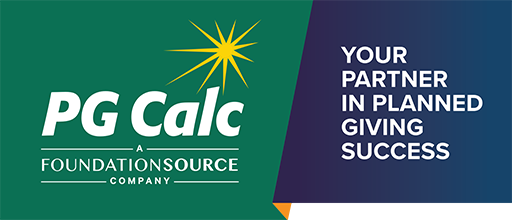If there’s one piece of advice you’re probably tired of getting, it’s “always be marketing bequests.” Of course, this is good advice because you do want your organization to be included in the wills of your donors. It is an ideal arrangement for both parties - donors are able to provide a gift to your organization after their lifetimes with little or no current financial strain, and your organization is strengthened by their gifts, whenever received.
Here is one suggestion of a different way to carry out that marketing dictum, an approach that can be particularly meaningful and rewarding for you and your donors. Consider “ethical wills”.
An ethical will is a written personal statement in which a donor shares her values, life lessons, hopes for the future, love, and forgiveness with family, friends, and community. A donor’s ‘legal will’ is limited to passing along the things they have accumulated during their lifetime but an ethical will passes along what is arguably so much more important – who they are, what they have learned during their time on Earth, and what they have held dearest during that time.
Talking with your donors about ethical wills and encouraging them to reflect on the values they want to pass on to their children and grandchildren is one way to start the legacy planning conversation. It can open the door to donors thinking about a purposeful, thoughtful, and perhaps ultimate gift to your organization. One natural outcome to a conversation about what has been important to them during their lifetime is a reflection about how they might want to express that passion in their final plans.
The form of an ethical will is entirely up to the writer but typically it is done through a letter or essay. Google “ethical will” and you’ll get numerous results, but www.ethicalwill.com is a good place to start learning more about them (the Examples link in the left navigation bar is especially useful). You also might want to check with the financial advisors in your community as some offer information and kits for preparing an ethical will that you might be able to draw upon.
Beyond getting the legacy planning wheels in motion, showing interest in ethical wills will reinforce your credibility in philanthropic planning and allow you to connect more deeply with your donor on the topic of legacy. Your donor will notice you more as a legacy expert, escalating your relationship with her from simply a representative of a specific charity to a philanthropic partner.
You can reinforce your legacy expertise by offering a seminar for older donors to help them craft their own ethical wills. The point of the seminar would not be to secure more planned gifts, at least not directly. Rather, just like retirement planning seminars, it would be an opportunity to share knowledge with your supporting community, deepen donor relationships, reinforce trust, and be a resource for your older donors.
Show your donors where to start. No two ethical wills need look or sound the same, but having an assortment of examples is helpful. Here are a few tips you can share on writing Ethical Wills:
- Keep your audience in mind. If the audience is family, remember this document needs to withstand the test of time. Address not only your children and grandchildren (if applicable) as they are now, but also the people they will be when they are older and thinking about their own legacies.
- Be specific. What motivates you philanthropically? Was it life experience? A story you want to share? Something else?
- Think about what has been fulfilling to you. Do you remember stories that your parents told that meant a lot to you but were never “recorded” in writing? Who were your mentors and why were they important to you? Has work or career been a big part of your life?
Understanding your donor’s values and motivations more clearly will create an amazing opportunity for you to connect their passions with the mission of your organization and its programs. What’s more, the stories your donors tell about connecting with your organization can help lead others to make similar estate gifts. They might even inspire a specific marketing campaign.
Whether they were a student at your university, a patient at your hospital, or a patron of your cultural institution, your organization has been perceived by your donors as reinforcing and expressing their own values. Discussing an ethical will provides a natural avenue for them to truly discover these connections and to dream beyond the possible.

